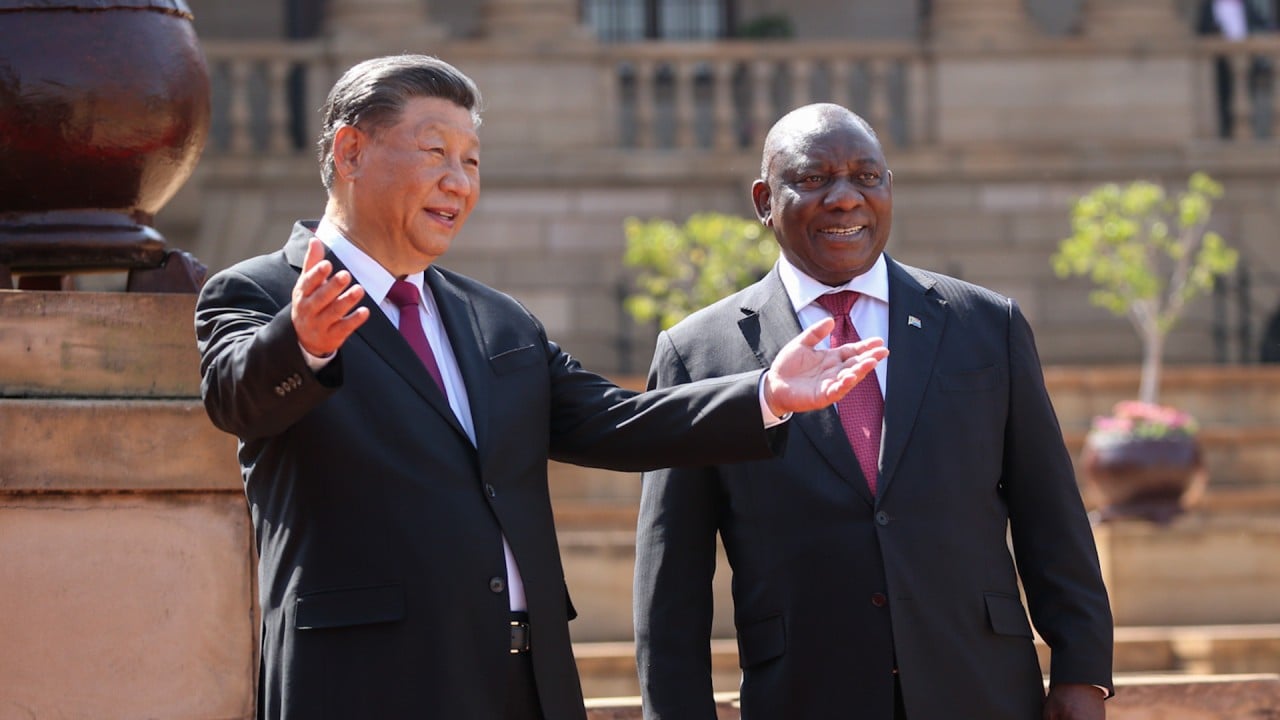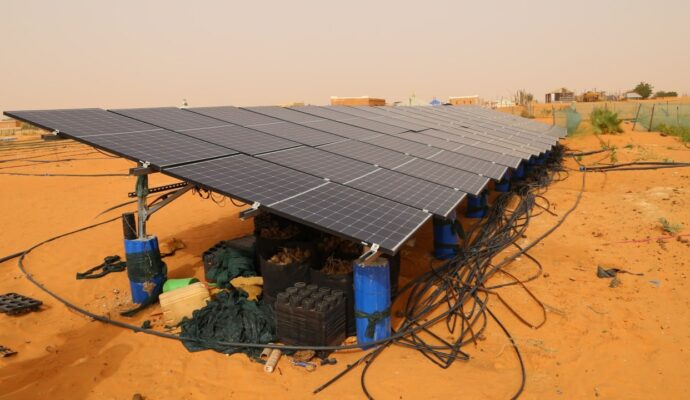It is the first major expansion since Brics was formed in 2009 by Brazil, Russia, India and China, with South Africa joining a year later.
In terms of purchasing power parity, Brics will account for 37 per cent of global gross domestic product (GDP) and nearly half of the world’s population, with the inclusion of the new members. That would compare with the G7’s 30 per cent of global GDP.
Advertisement
During the Brics Summit in Johannesburg last week, Chinese President Xi Jinping termed the expansion “historic”, saying it would “inject new vitality” into the cooperation mechanism.
There was intense speculation in the build-up to the summit, as it appeared that members were divided over expanding membership and the introduction of a common currency.
Will India risk alienation from Brics over US tilt, bid to dilute China’s clout?
Will India risk alienation from Brics over US tilt, bid to dilute China’s clout?
The countries believe that Brics could help counterbalance Western dominance on international organisations and financial systems. For instance, Iran, which is considered a pariah state from a Western perspective and is also heavily sanctioned by the United States, believes Brics would help champion its interests and those of other countries in the “Global South”.
While announcing the first phase of the expansion process, South African President Cyril Ramaphosa said in late August that Brics nations had reached a consensus on the guiding principles, standards, criteria and procedure.
He said they had noted the interest of other countries in joining the group, and so leaders tasked their foreign ministers with further developing the Brics partner-country model, with a list of prospective countries and a report by the next summit in Russia.
New Brics members boast oil, deep pockets and strategic locations: analysts
New Brics members boast oil, deep pockets and strategic locations: analysts
According to Gustavo de Carvalho, a senior researcher on Russia-Africa ties with the African governance and diplomacy programme at the South African Institute of International Affairs, Russia supported the expansion mostly due to the effect of sanctions imposed by the West over Moscow’s invasion of Ukraine, and particularly Russia’s own need to diversify relations with other countries such as Iran.
Advertisement
For China, it would like to see Brics become much bigger and more representative to support Beijing’s global diplomatic and economic ambitions, de Carvalho said.
South Africa was initially seen to be on the defensive about the expansion – mostly sceptical about its influence in Africa being diluted. But with time, a lot of narratives changed towards believing that the expansion to include African countries would benefit the continent, de Carvalho added.
Advertisement
Brics members give support to expanding bloc to face ‘turbulent times’
Brics members give support to expanding bloc to face ‘turbulent times’
Advertisement
According to analysts, energy-rich Saudi Arabia and the UAE provide deep pockets to any future Brics currency and are the equivalent of the lender of last resort, while Ethiopia and Egypt come with big population numbers that could “future-proof the Brics project”.
In addition, Brics leaders discussed trading in local currencies. The leaders agreed to task respective finance ministers or central bank governors to consider the issue of local currencies, payment instruments and platforms and report back at the next summit in Russia.
By diversifying sources of payment in local currencies and expanding its network of partners and members, the NDB is a strategic platform to promote cooperation among developing countries
Advertisement
“By diversifying sources of payment in local currencies and expanding its network of partners and members, the NDB is a strategic platform to promote cooperation among developing countries,” he said at the summit.
Overall, while the expanded Brics grouping will have more economic and political clout, “it is difficult to see how any meaningful decisions will be made and implemented”, according to Oxford Economics Africa.
This is supported by researchers at London-based Capital Economics, who said, “India’s complicated and acrimonious relationship with China suggests that even a bigger bloc will fail to make much headway on policy proposals”.
60-Second Catch-up
Deep dives
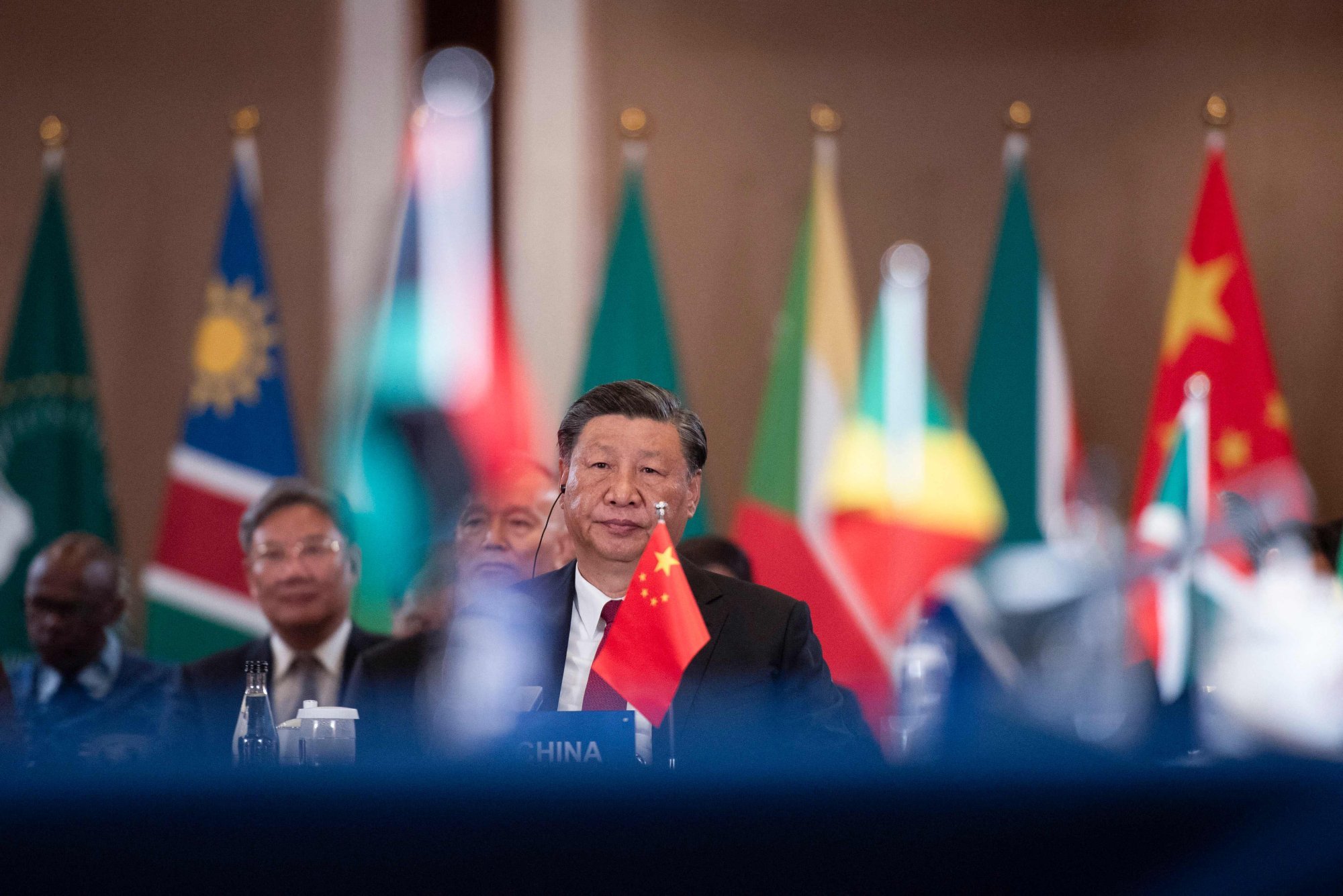
Brics expansion helps China, but bigger bloc could bring fresh risks and conflict, analysts say
Addition of Middle Eastern and African countries reflects Beijing’s influence and extends its diplomatic reach, according to observers
However, regional rivalries and conflicting motivations could make it hard for group to reach agreement on security and economic issues
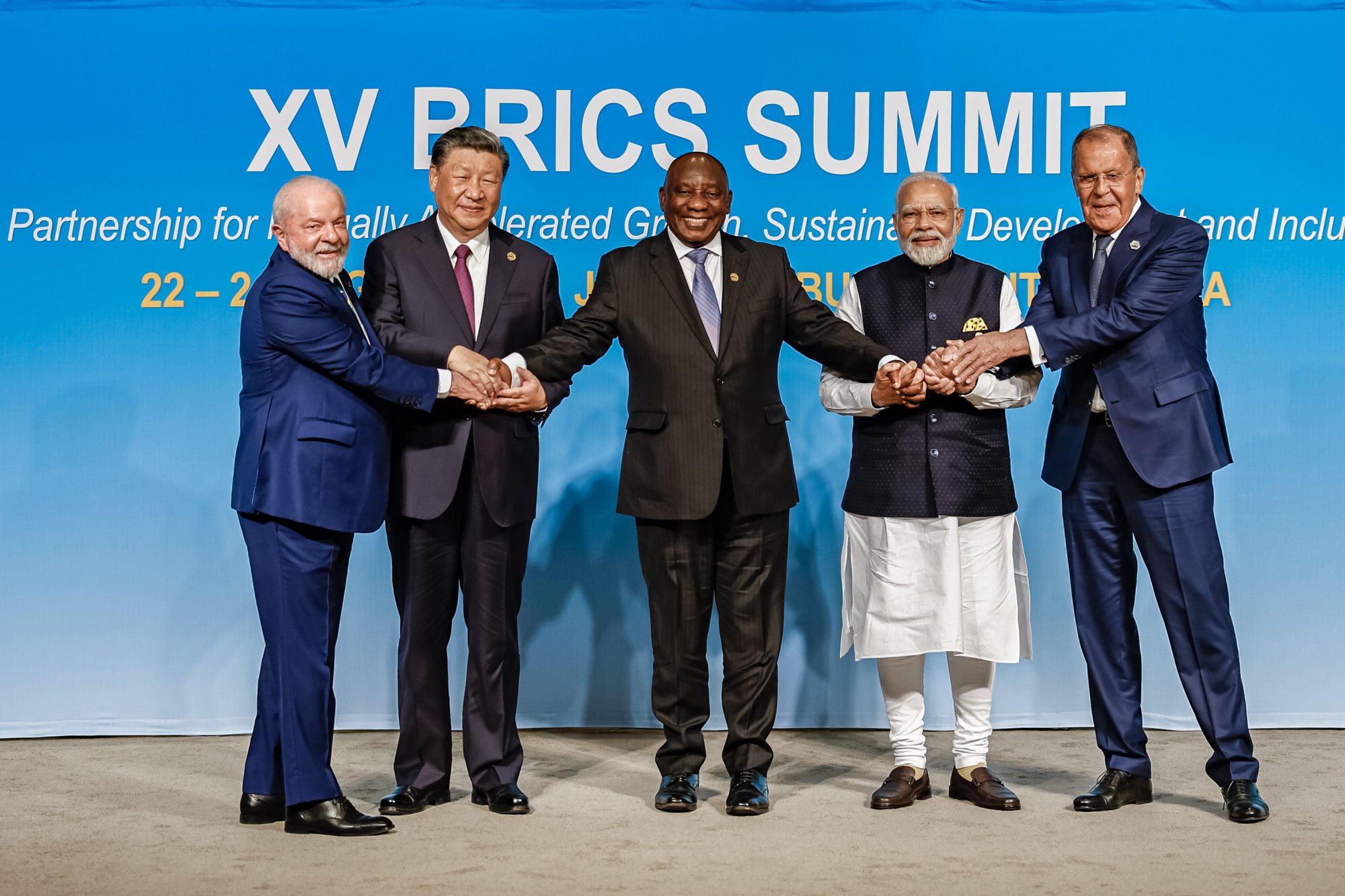
Can expanded Brics pressure rich nations to fulfil ‘broken’ promises of US$100 billion a year in climate funding?
Emerging nations say only a fraction of the climate change financing promised by rich nations at a 2009 summit in Copenhagen has flowed to them
But analysts warn that Brics members must ‘see the opportunity’ to realise potential gains – and not be clandestinely undermined by the US
South African President Cyril Ramaphosa, the current Brics chair, announced last week that Argentina, Egypt, Ethiopia, Iran, Saudi Arabia and the United Arab Emirates would become full members of the bloc from January next year.
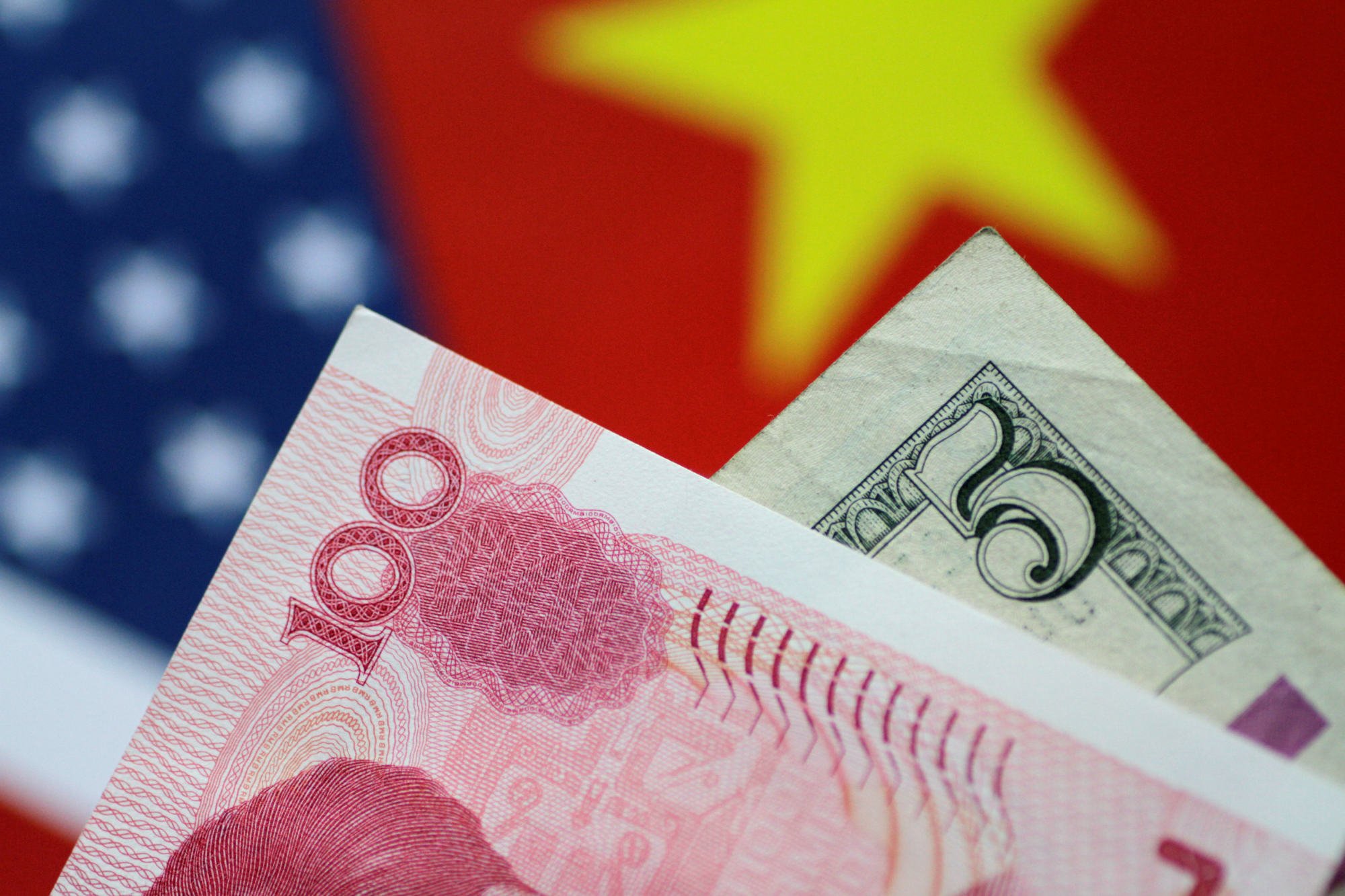
How expanding China-led economic bloc Brics adds to the yuan’s global clout
Developing economies Russia, Brazil, India and South Africa joined China in welcoming these six new member states into the group’s fold
Brics members are expected to step up their use of local currencies for trade and development, shunning the globally dominant US dollar
Expanding a China-influenced group of the world’s largest developing economies is expected to give the yuan a stronger role in global trade, and member states are already discussing how to use their own currencies in trade, rather than the dominant US dollar.
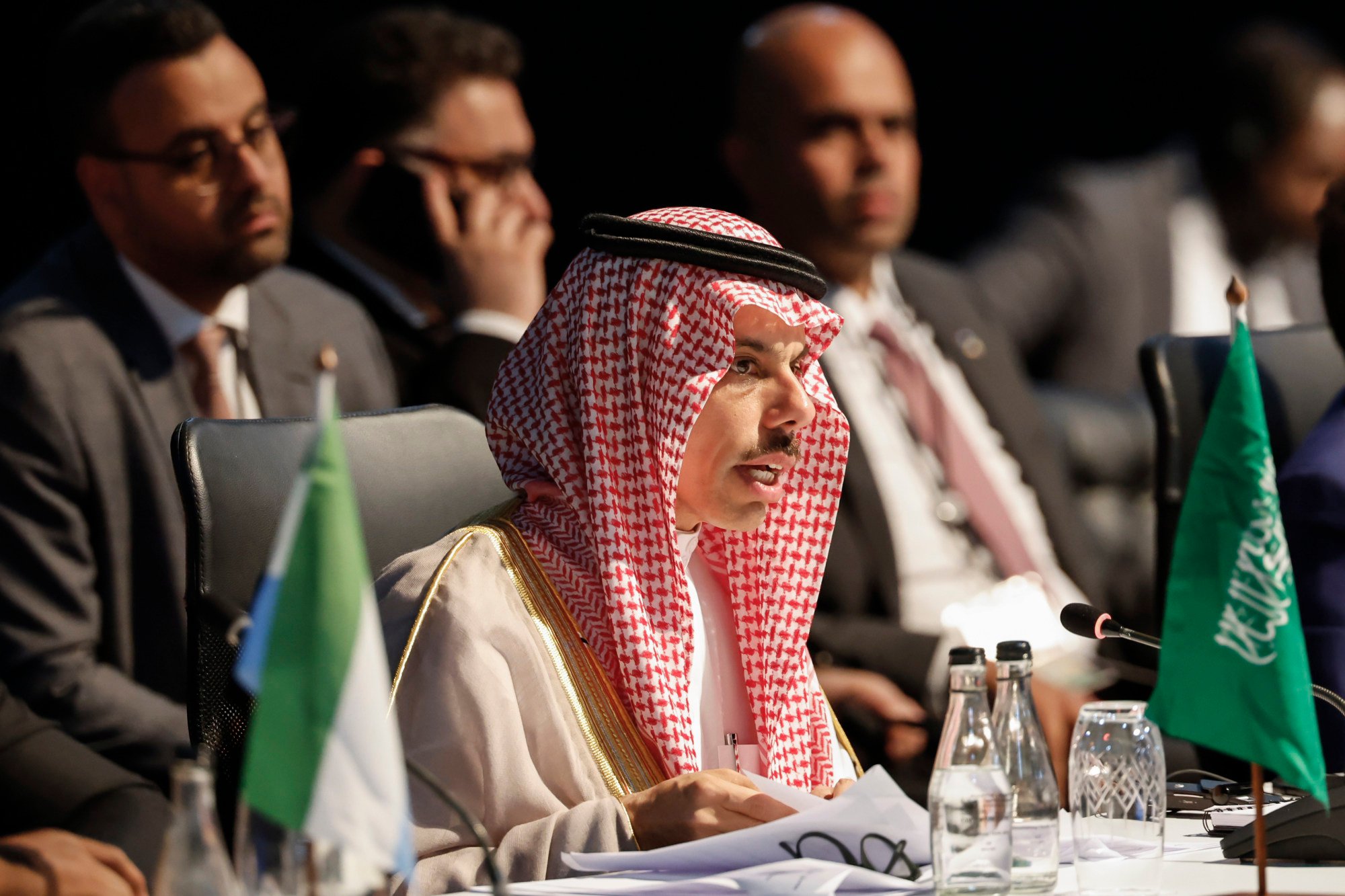
New Brics members Saudi Arabia, UAE taking ‘a step away’ from US, seeking global roles
With their accession to the Brics group, Saudi Arabia and the UAE will be able to act more independently of the US, according to analysts
The move is part of the two Middle Eastern states’ efforts to diversify their partnerships and take on more global leadership roles
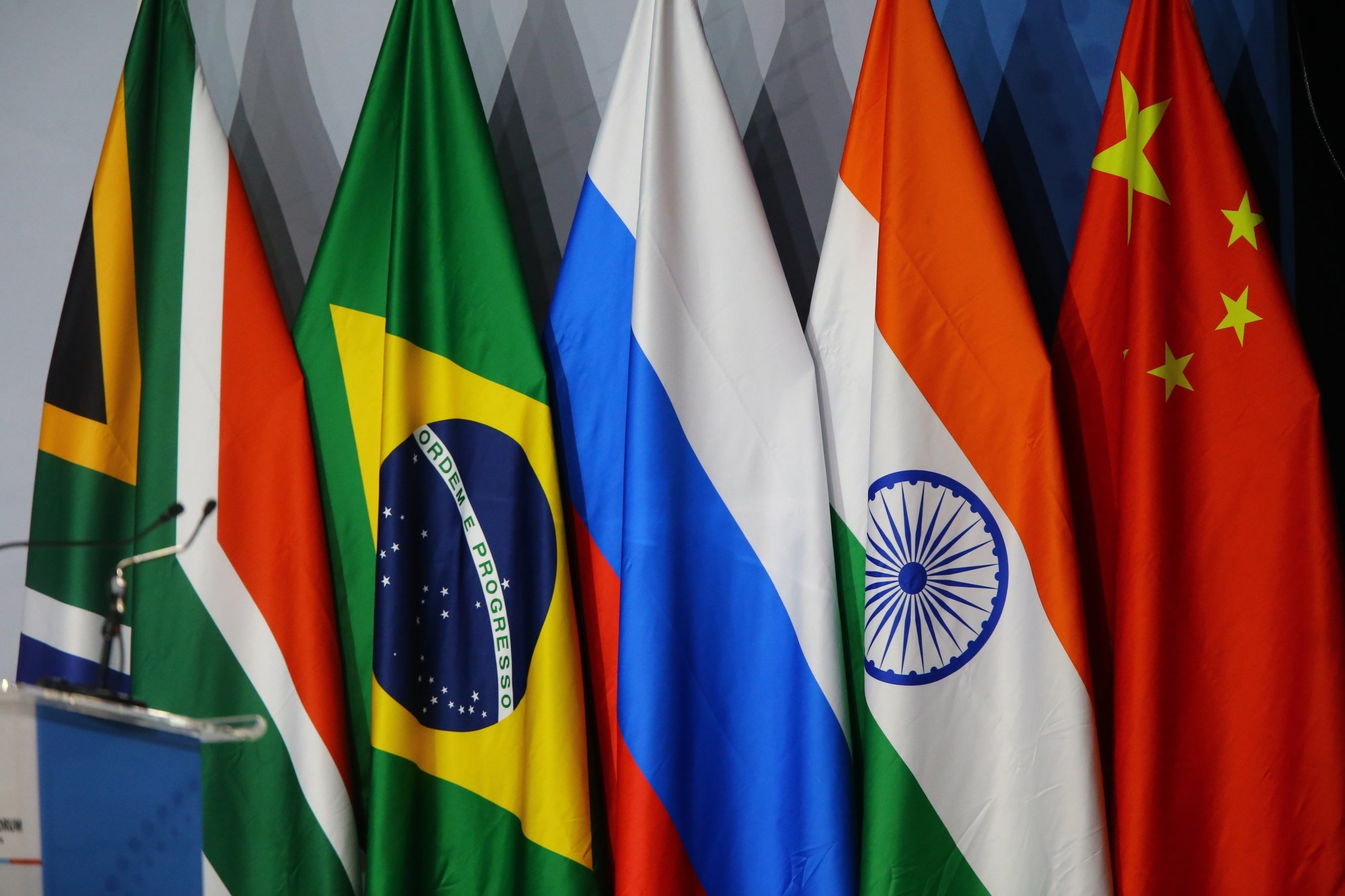
Could a bigger Brics bloc be a global match for the G7?
The new members of the China-led group will add to its economic clout but that is unlikely to translate into political heft any time soon, observers say
Without common ground, consensus will be more difficult to reach, they say
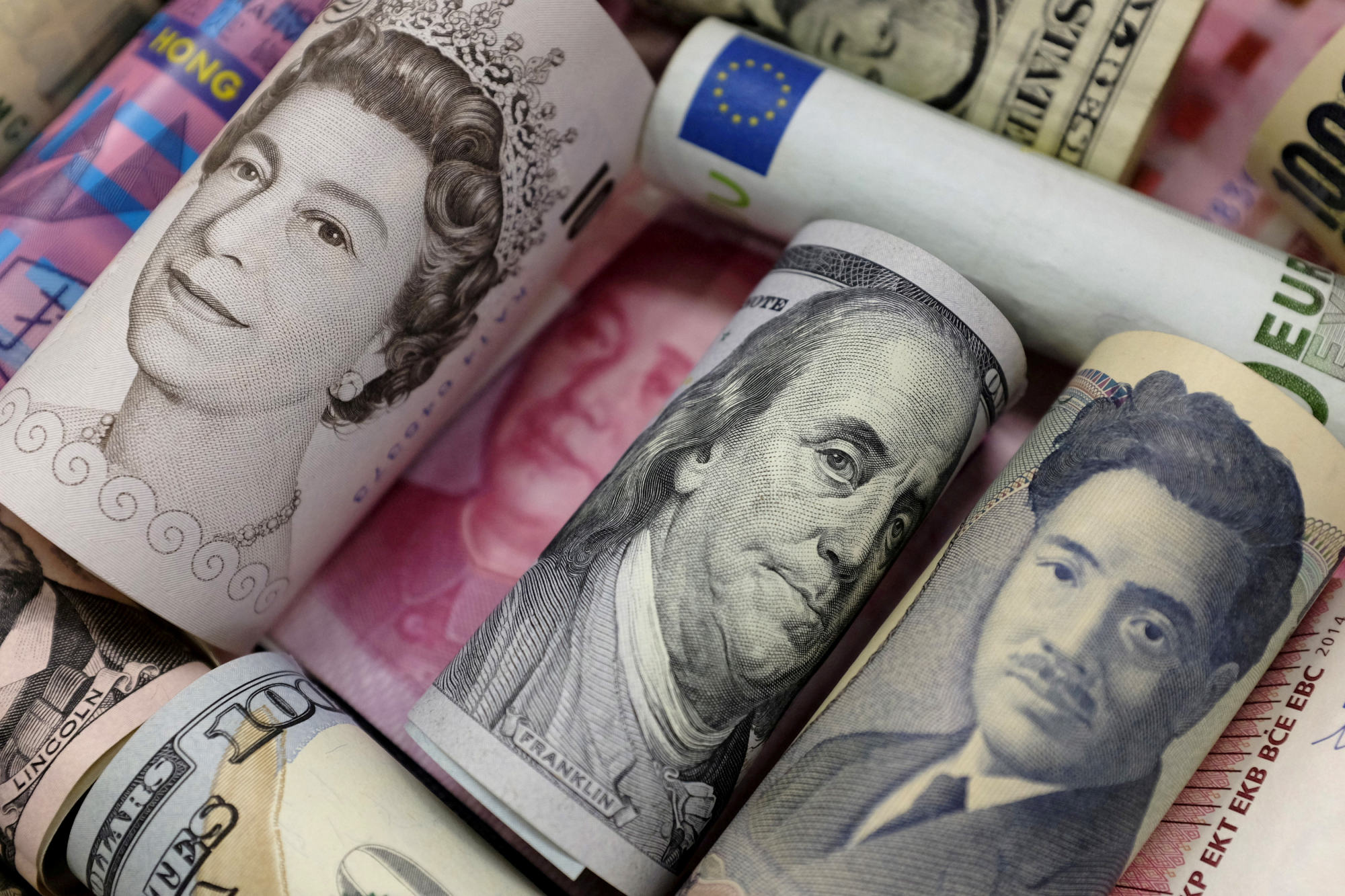
China-led de-dollarisation gains traction among emerging economies ahead of Brics summit
Expansion rate of the Brazil, Russia, India, China and South Africa economic bloc seen determining speed at which it stops using US dollar systems
To help ward off Washington’s alleged currency weaponisation, calls to shift away from the US dollar are growing louder, but a new currency union may be unlikely
The American dollar’s dominance in global trade looks to be challenged by the expansion of an economic bloc involving China, according to research by ING that comes as talk of a currency union has turned heads in the lead-up to next week’s Brics summit.
The association of five major emerging national economies – Brazil, Russia, India, China and South Africa – represents about a quarter of the global economy and accounts for 41.9 per cent of people on Earth. Bloc representatives will meet in South Africa from Tuesday to Thursday.
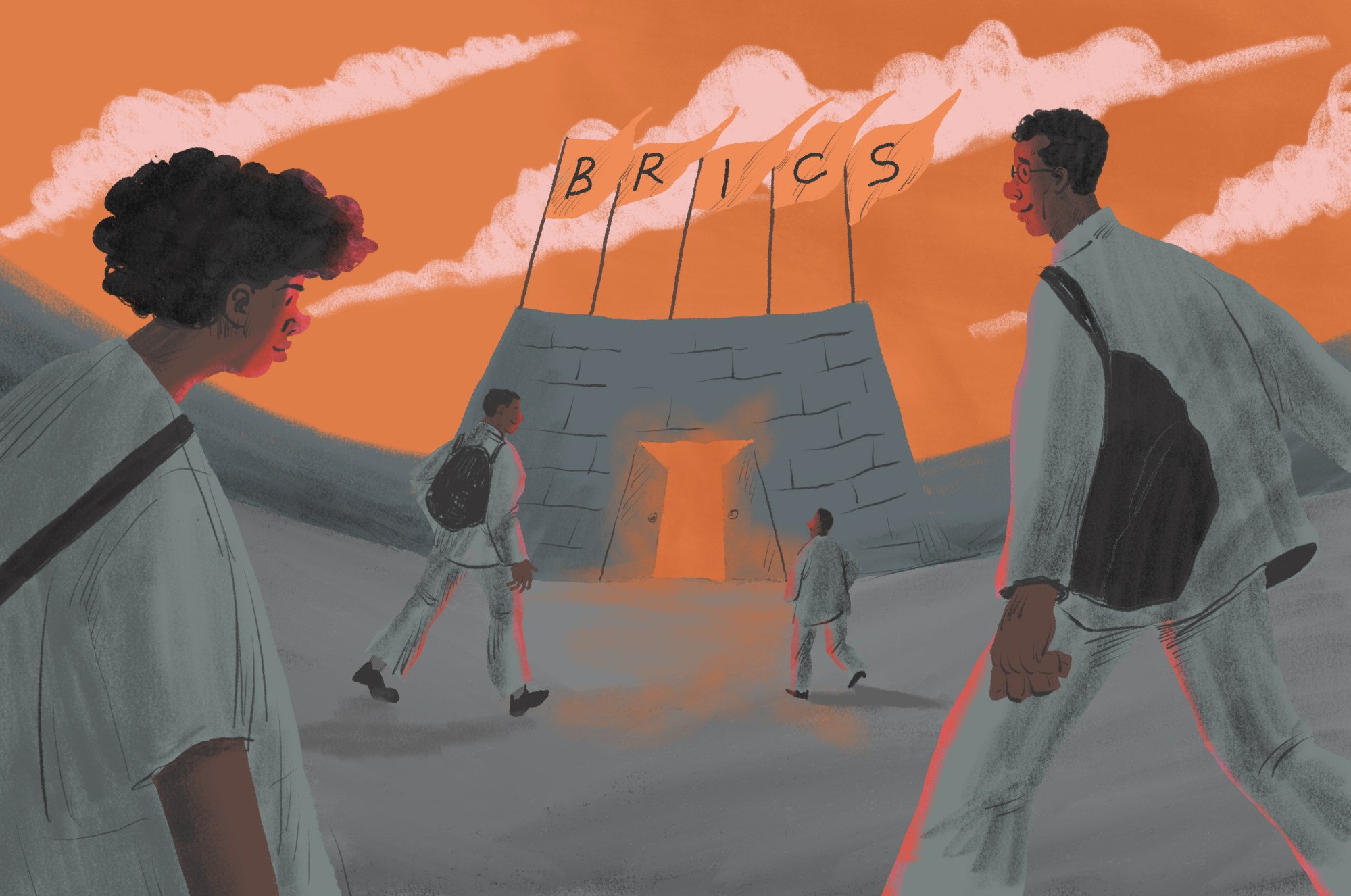
Why African nations are keen to join the expanding Brics club
A number of countries on the continent are lining up to join the emerging global player, which many hope will rival Western-led groups including the G7 and G20
Currency and new members to the bloc will be top of the agenda at the next gathering of Brics leaders to be held in South Africa in August
Global Impact is a weekly curated newsletter featuring a news topic originating in China with a significant macro impact for our newsreaders around the world.
Advertisement
